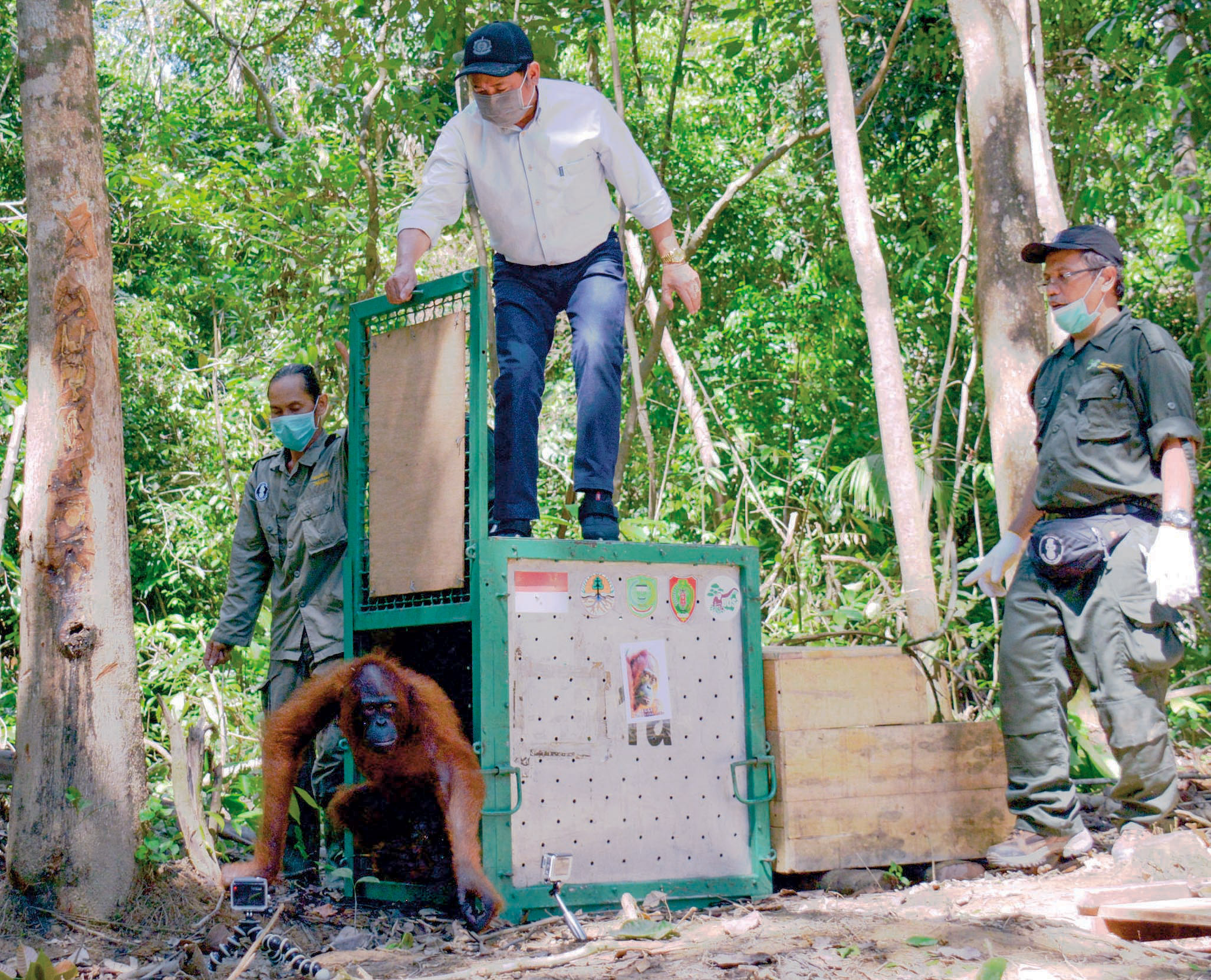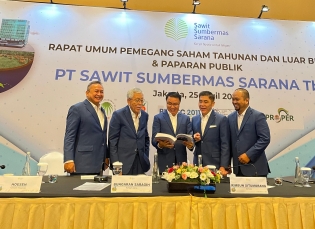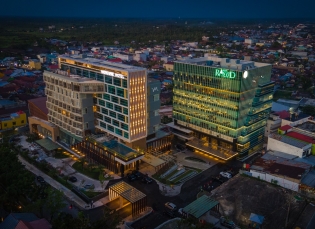PT Sawit Sumbermas Sarana Tbk and Its Contribution to Orangutan Conservation in Central Borneo

PALANGKA RAYA , PPOST
The existence of PT Sawit Sumbermas Tbk (SSMS) is less familiar in the public. Even if anyone knows, then the one who comes to mind is only part of the corporation of a large oil palm plantation (PBS) which is headquartered in Pangkalan Bun, Kotawaringin Barat (Kobar), Kalimantan Tengah (Central Kalimantan).
The vision of SSMS aspires to become a world-class plantation company, that has a mission to optimize the potential of palm oil. The motivation is the belief that oil palm is the answer to the surge in demand for vegetable oils in the future, the stimulus of national development, and a carrier of tangible benefits to society and the environment. Therefore, the company manages all plantations and factories in accordance with industry best practices and sustainability standards.
The Chief Executive Officer (CEO) of SSMS Vallauthan Subraminan said, that currently SSMS has a land area of ??95,770 hectares. The land is divided into 19 estates and 7 palm oil mills (PKS) which are spread in three districts in Central Kalimantan Province.
Vallauthan also said, through the Pulau Salat program, SSMS wanted to prove to all stakeholders that conservation and economic sustainability could work together. And SSMS is a pioneer for creating conservation activities by collaborating with NGOs, Borneo Orangutan Survival Foundation (BOSF).
"As a party committed to environmental sustainability, SSMS with BOSF manage 2,143 hectares of land for Orangutan pre-release and protection of living natural resources. "To support the success of the program, the company has allocated funds of Rp. 8 billion, with Rp. 2 billion in cost allocation each year," he added.
"As a company that has been certified by the Roundtable on Sustainable Palm Oil (RSPO) and Indonesian Sustainable Palm Oil (ISPO), SSMS is committed to applying the principles of sustainability and preserving the environment. This is in accordance with the corporate values ??that not only profite orientation, but also people and the planet, "he explained.
Pulau Salat, Orangutan Pre-release and Ecotourism Site
As a form of corporate commitment to business and environmental sustainability, the company partnered with BOSF to choose Pulau Salat, in Jabiren, Pulang Pisau (Pulpis) District for the Orangutan pre-release area and the protection of living natural resources. The area intended for orangutans to adapt before being released into their natural habitat is quite extensive, at least enough to support the adaptability, socialization and availability of protected primate feed.
"This is our big commitment to environmental sustainability, because the company apreciate the importance of maintaining an ecosystem balance. In addition, we have established good colabotarion with residents around the Pulau Salat conservation area to help grow the economy of the community. "This is in line with our vision to become the best plantation company of international standard, by applying the principles of sustainability in every company policy, to the great benefit for all stakeholders," he explained.
Overmore, The Task Executor of Head of Sustainability SSMS, Rudy Hendrarto also explained that currently there are 33 individuals in the Salat Islands, 6 of orangutans which are unrealesable (cannot be released into the wild). Until 2019 there are 18 orangutan individuals who have been released into their natural habitat.
"This proves that Salat Island has been a successful pre-release place for Orangutans," said Rudy Hendrarto.
In its journey, the owner of the Citra Borneo Indah (CBI) Group, and SSMS, Haji Abdul Rasyid AS, in 2017 also had the opportunity to release one individual orangutan in the Salat Islands area, which is still sustainable.
Rudy also added that besides being used as a pre-release place, Salat Island would later be developed into an ecotourism area by optimizing the potential of the village and the local environment in terms of improving the economy. In the future, it will be open to the arrival of domestic and foreign tourists to enjoy the beauty of natural tourism, which of course is able to increase local revenue (PAD).
"Through the empowerment program of the Pilang Village community, SSMS encourages the formation of tourism conscious communities, helps in building tourism support facilities such as homestays, providing touristm klotok and encouraging and supporting the realization of fruit orchards to supply Orangutan food," he said.
Furthermore, Rudy also revealed that the Salat Island ecotourism will only begin after the establishment of a tourism conscious group. This is done because SSMS wants the people of Pilang Village to benefit from the development of ecotourism on Salat Island.
The existence of ecotourism can create a source of income for the surrounding community, one of which is from other tourism support activities, which are based on local culture such as culinary, local craftsmen and other activities related to cultural arts.
BUMDes Prepares Tons of Fruits and Vegetables
Meanwhile, the Head of the Badan Usaha Milik Desa (BUMDes) of Pilang Village, Karyanto, who was met by the newspaper, said that the empowerment of rural communities had indeed been running for about 3 years. He said, to provide food for individual Orangutans (fruits and vegetables) and the daily needs of Salat Island operations, the local residents prepared.
"We are the BUMDes, in this case the task is to facilitate the needs of the company with the potential that exists in the Village so that it is economically beneficial for all parties," he said.
"We also plant various kinds of fruits and vegetables ourselves for orangutan feed. Per day, one Orangutan individual can consume vegetables and fruit up to 5 kilograms, "he added.
It is conceivable if there are eight individuals who "school" on Pulau Salat before being returned to their natural habitat, then within a month tons of fruit must be prepared for individuals whose 97 percent Deoxyribo Nucleic Acid (DNA) resembles that of human DNA.
The involvement of the community around the island of Salat is not only in the provision of food, but also works in the area, in various parts. Starting from cooking for employees to managing forest area.




